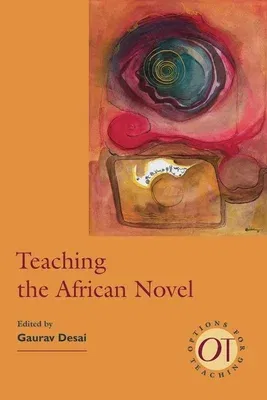Teaching the African NovelHardcover, 1 January 2009

Temporarily out of stock
Free Delivery
Cash on Delivery
15 Days
Free Returns
Secure Checkout

Part of Series
Options for Teaching
Part of Series
Options for Teaching (Numbered Hardcover)
Print Length
434 pages
Language
English
Publisher
Modern Language Association of America
Date Published
1 Jan 2009
ISBN-10
1603290370
ISBN-13
9781603290371
Description
Product Details
Book Format:
Hardcover
Country of Origin:
US
Date Published:
1 January 2009
Dimensions:
22.86 x
15.49 x
3.05 cm
ISBN-10:
1603290370
ISBN-13:
9781603290371
Language:
English
Location:
New York, NY
Pages:
434
Publisher:
Weight:
748.43 gm